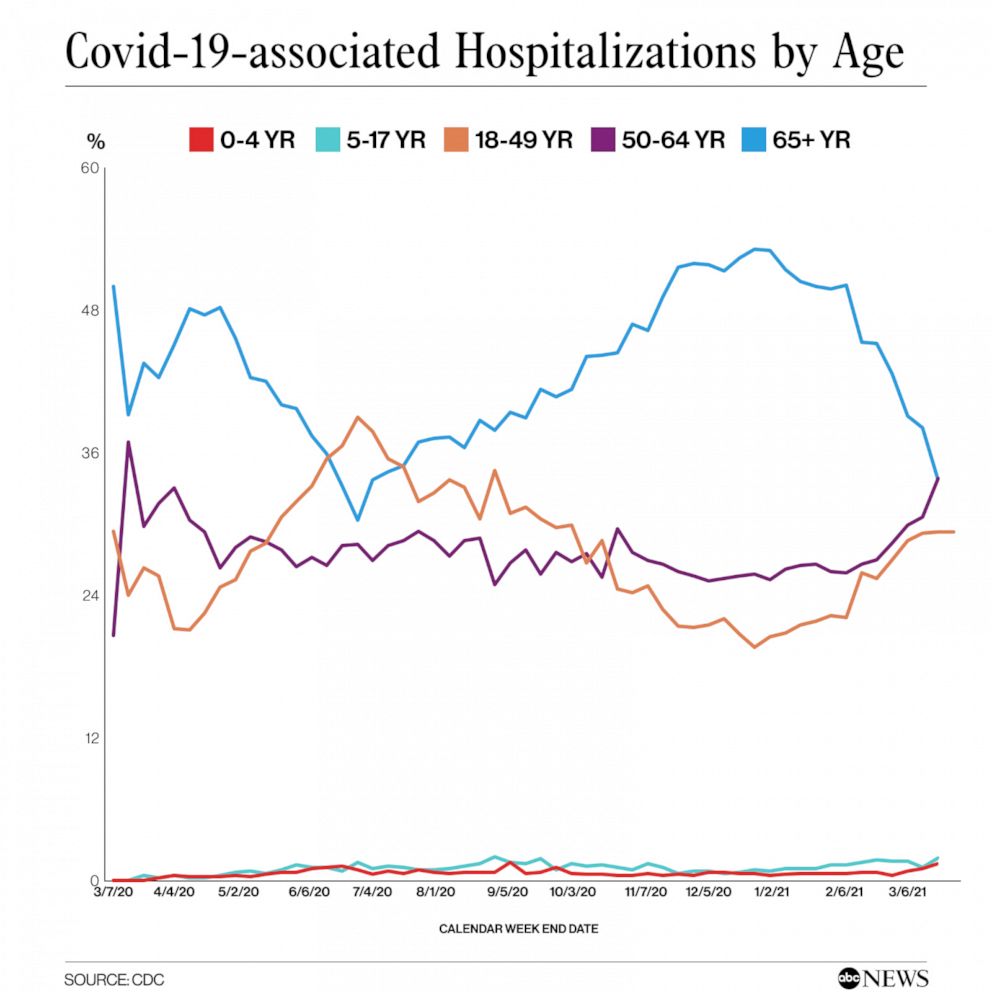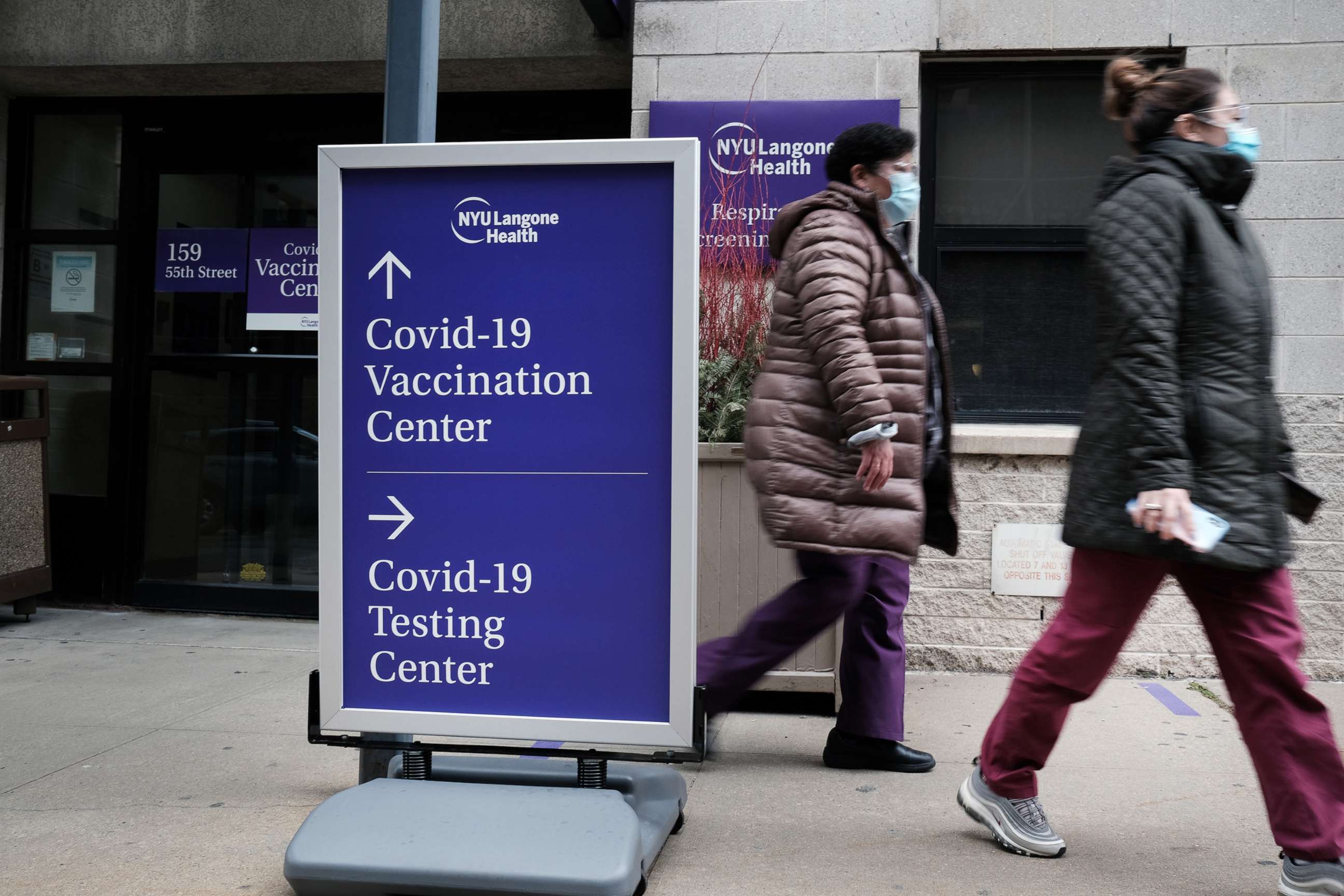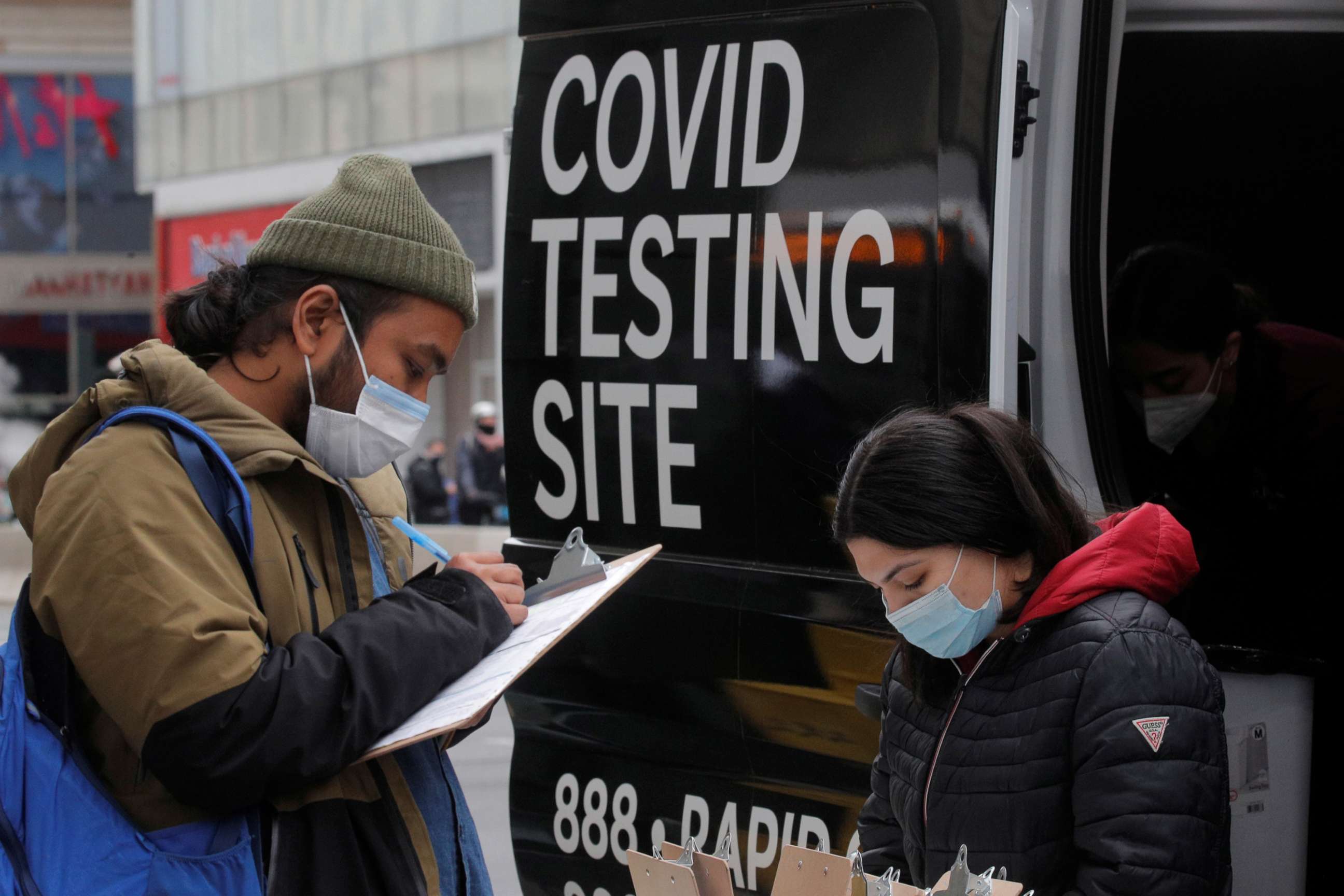With older Americans largely vaccinated, more new COVID-19 cases among younger adults
A new COVID-19 new surge would likely impact younger, unvaccinated adults.
As more older Americans get vaccinated an increasing number of new COVID-19 cases are impacting younger adults, prompting warnings that Americans remain vigilant in an effort to prevent more people from becoming sick.
The number of new COVID-19 cases increased more than 10% in 26 states, Washington, D.C., and Puerto Rico since last week, a possible signal that the country is on the cusp of a new surge.

And for the first time, the majority of new hospitalizations have been younger adults, with cases among people ages 50-65 increasing more than those older than 65, who are more likely to have been vaccinated. And in some states, like Michigan and Massachusetts, the number of cases among older children, teenagers and young adults have also increased.
At the same time recent data showed a 96% decline in COVID-19 cases in nursing homes since the vaccine rollout began in December, indicating high vaccination rates are helping protect older populations.
Dr. Nick Gilpin, chief medical officer for Beaumont Health system in Michigan, said the average age of their COVID-19 patients is 46 years old.
"A lot of these individuals have been doing all of those things that we’ve been warning about: gathering together in large groups, going to bars and restaurants," he told ABC News.
Public health experts say a more serious spike in cases can still be prevented, but only if everyone doubles down on protections like wearing masks, avoiding indoor gatherings, refraining from nonessential travel and getting vaccinated as soon as possible.
"I so badly want to be done. I know you all so badly want to be done. We are just almost there, but not quite yet," Centers for Disease Control and Prevention Director Rochelle Walensky said in an emotional warning on Monday.
Walensky and other public health officials said cases are increasing because people began to relax their behavior while there was still a lot of the virus spreading in the country, particularly newer variants that can spread more easily. As more states have relaxed restrictions and more people have been traveling, the virus has taken advantage of more opportunities to spread.
"The rapidly increasing number of COVID-19 cases in teens and young adults is very troubling. Tragically, states -- like Massachusetts -- ignored the advice of public health officials and re-opened too quickly," said Sam Scarpino, an assistant professor in the emerging epidemics lab at Northeastern University.
"As a result we're at risk, entering another surge and delaying our safe return to normalcy," Scarpino added.

Twenty-six states, Washington, D.C., and Puerto Rico have seen an increase of over 10% in the number of new cases since last week. New Jersey, New York, Michigan, Rhode Island, and Connecticut currently hold the highest case rates per 100,000 people over the last seven days. Hospital admissions are also increasing in nearly a dozen states.
As more states push to reopen schools and businesses the increased activity also creates more opportunities for the virus to spread among younger groups that have thus far not been seen as at high risk for severe illness.
"Not many states make age data available over time, but in the few that do, older children -- 10-19 -- and young adults are making up a larger fraction of the cases. This likely reflects a combination of widespread vaccination among older adults and increased mobility among young people, through school reopening and more community activities," said Dr. Caitlin Rivers, epidemiologist at the Johns Hopkins Center for Health Security.
Rivers said a new surge among younger adults wouldn't necessarily lead to increases in hospitalizations and deaths like the trend with previous surges.
"Through most of the pandemic, hospitalizations and deaths have tracked closely with cases. But now that nearly three in four people over the age of 65 have had at least one dose of the vaccine, we’ll start to see that change. I expect that even in places where cases surge, we won’t see as many severe cases as we would have six months ago," she said.

But Walensky and other public health officials said even if a "fourth surge" in cases affects more younger adults, they're still concerned about any increase in how much the virus is spreading.
"There are plenty of reasons to not want to have COVID outside of just the deaths alone," Walensky said in an interview on MSNBC on Monday night.
"We know that about 10% of the population that gets sick with COVID has long haul syndrome, has symptoms beyond three weeks, cardiac challenges, depression and mental health challenges, pulmonary challenges, renal failure, clotting. So there's a lot we don't understand about this disease, and we shouldn't want to have it circulating whether or not it leads to mortality," she continued.
ABC News' Arielle Mitropolous contributed to this report.




